- Home
- Kathryn Lasky
Chasing Orion
Chasing Orion Read online
Silver glinting behind leafy trees — that is the first thing I noticed as I stood in the backyard of our new house that hot summer day. Like a glistening metallic eye, the silver winked through the deep green leaves. A creepy feeling stole over me. It was as if I were being watched. Weird! But then again, everything seemed weird in this new neighborhood.
Look in the other direction, and you could see our just-landscaped yard, sweating in the July heat. A few new shrubs and young trees crouched beneath the Indiana sun. Mom refused to put down grass seed yet. She said it would burn up. We’d wait until spring. I hated this new neighborhood, this new house, and this new yard. The “lawn” looked naked and raw. Ripples of heat rose up and turned the air wavy. Our old yard was small, but it was nice and shady.
There was only one really big tree in our old yard, but that was enough. That space, the space defined by the tree and its shade, became the first small world I ever made. Making scenes in boxes was my hobby. But they were more than just scenes; they were stories. Just about as soon as I got my first dollhouse, I decided to try and make my own, except I didn’t want a dollhouse exactly. I wanted a whole world and a good story put in a little box. I didn’t care that much about all the dollhouse stuff: tiny refrigerators, minute sewing machines, and little beds and chairs — all the same things that you outfit a real house with.
I knew I would never make a small world of this stupid backyard. Never! I did have a thought, though. Backyards might change, but the sky doesn’t. I was under the same sky here in this new ugly neighborhood as I had been in our old shady one. At night, the stars, the constellations, were the same. I found some comfort in that thought. My older brother, Emmett, was an amateur astronomer. He had even built telescopes, and we did a lot of sky watching at night. Why not make a small world of the sky, maybe a small universe?
I was staring back at the metallic eye, maybe slightly hypnotized, when I heard a car pull into our drive. It was Mom. Her Buick shimmered darkly in the heat. It didn’t look quite real, as if it might just up and evaporate.
“Georgie!”
“Yeah, Mom.”
“You water those trees yet?”
“No.”
“Well, why not?”
“Too hot.” Mom walked over to my lawn chair — I’d been reading my comic books under an umbrella we’d stuck into a crack in the patio.
She sighed. “Too hot? Georgia Louise Mason, you’ve been complaining all summer about not going swimming, and now’s your chance to get wet and cool and you don’t do it.”
“Mom, everyone else gets to go swimming up until August. You wouldn’t even let me go to Susie Grenelle’s birthday party, and it was in June! At a private pool!”
“Honestly, Georgie, are you going to hold Susie Grenelle’s birthday party against me for the rest of my life?”
“But Mom, I have no friends in this neighborhood. I have to go to a new school, and we are the only family in the whole state that had to stay out of swimming pools all summer. Even on the Fourth of July!”
I took the Fourth of July personally. It was not just a national holiday. It was my birthday. In fact, my mom and dad had considered, for about two minutes, calling me Georgia Liberty Mason, but then decided to slide in Louise for the middle part, a kind of nothing name if you ask me. Ever since I could remember, or at least ever since I had known how to swim, I had had a splash party for my birthday at the local swimming pool. But not this year. Not now that there was polio. I took this so personally that I refused to have any Fourth of July stuff on my birthday cake, as I usually did. I guess it was a matter of offend me, offend my country — we share a birthday. So there!
“Georgie, sweetheart.” Her voice changed. It wasn’t scolding anymore. It was kind of soft and wavy like the ripples of heat. “You don’t want to end up like her.” She nodded toward the trees where the silver glinted.
“Who?” I was getting a queasy feeling in my gut.
“That girl over there, our new neighbors, the Kellers. I met them yesterday. Their daughter, Phyllis, is the same age as Emmett. She got polio and she’s . . .” I think I knew what was coming. “She’s in an iron lung.”
I dropped my comic book on the patio, rose up from the chair, and looked at the glints of silver. It had seemed weird but at the same time almost magical when I had looked through the trees. Now there was nothing magical. It was simply and horribly unbelievable. I had seen iron lungs, but only pictures of them on television and in newsreels in the movie theaters — where we were now not allowed to go in the summer, along with the swimming pools, because of the crowds and the fear of catching polio.
“You mean right next door to us there’s an iron lung?”
“I do indeed.”
“But I thought you had to be in the hospital if they put you in one of them.”
“Mr. Keller is a very important scientist for the Eli Lilly drug company, and I suppose like most of those Lilly big shots, he’s got plenty of money. So they can afford to have one at home. It’s all very sad. So let’s not talk anymore about swimming and swimming pools.”
“And the state fair,” I added in a dull voice.
I had always loved the Indiana State Fair. Here’s what I loved about it: the goats, the freak shows — even though Emmett said they were fake freaks half the time — and the cotton candy. In that order: goats, freaks, cotton candy.
In my opinion there was nothing better than goats. Goats are the most companionable of farm animals. That’s what my grandma always said, and she should know because she was a farmer’s wife and had a mess of goats. They are fun because every goat has a different personality. I knew goats that had more personality than many people. At the state fair they had goat exhibitions. And that was my idea of heaven. Just a whole mess of goats frisking around in the arena, showing off their goatiness. I wanted to have a goat at our old house, but Mom said the yard was too small. And then when we moved into this new house with a big huge yard, I asked again, but Mom said the neighborhood was too fancy to have goats pooping all over the place. Goats wouldn’t be “tolerated.” Imagine moving into a neighborhood where they wouldn’t tolerate goats. Emmett said there were a lot of things not tolerated in Indianapolis — like Negroes at the swimming pool and Negroes at the amusement park and Negroes in neighborhoods like ours. So I guessed that Negroes were having an even more boring summer than I was.
“I don’t know why you want to go to that old state fair, anyhow. It’s hot, dusty, and dirty,” Mom said, and plopped down into the lawn chair next to mine.
“Because.” It was too hot to explain any more.
“Sure hope your dad doesn’t go this year.”
“He’s got to,” I said in a shocked voice. “Mom, he’s head of the Indiana Poultry Association. Who will judge the chickens?”
“Let someone else do it. He doesn’t get paid a nickel for that durned job.” My mom could never bring herself to say darn, let alone damn. I could never figure out how slipping that u in there made darn less of a curse word.
“Well, he has to,” I said quietly. Mom just grunted. My dad was a poultry broker. It’s a fancy name for buying chickens and eggs in huge quantities and selling them to grocery store chains and restaurants and hotels and stuff like that. But it was not being a chicken farmer, as Darrell Caufield said, and for which I beat him up in the second grade. Anyhow, Mom was right. Dad didn’t get paid a nickel for being the head of the Indiana Poultry Association or for judging the chickens at the state fair. He just did it because it was what he called a “civic-minded” thing to do, and besides, at one time there had been a lot of what he called “corrupt practices”— in other words, cheating — in the poultry world. I know it’s hard to think of poultry as attracting gangsters. But there had been, acco
rding to Dad, “hanky-panky” with health regulations and shipment of hatching eggs.
“You know, Georgie, instead of sitting around complaining about the heat, you could go to the library. There’s a brand-new one here. It’s close enough to walk to.”
“It’s too hot to walk.”
“It’s air-conditioned once you get there. They have it up full blast. I was just there.”
“Is that what you got in those bags — books?” I asked.
“Yes, and other stuff for school.”
“School doesn’t start for way over a month. Why are you getting it now? The books will be overdue by the first day of school.”
“They have a special policy for teachers. We can keep them for six weeks and just call up to renew.”
“What else do you have? It looks like you’ve been to the five-and-dime.”
“Yes, the extra-fat crayons came in and they are perfect for kindergarten kids, and I knew they would sell out in a flash.” My mom was a kindergarten teacher. “Come on, sweetie, get up and start watering these trees. It looks like a durned desert around here.”
“Can I read my Archie comic while I do it?”
“I’m sure he won’t mind.” She laughed.
No, Archie wouldn’t mind, I thought, but would the gorgeous blond Betty or the raven-haired Veronica be standing in a dried-up yard watering a spindly little tree? They didn’t use the words raven-haired, of course, in the comic books. But I liked that word for black hair. It sounded dangerous and beautiful at the same time. They talked about movie actresses or heroines in old-fashioned books having raven hair or, better still, raven locks. I was not raven-haired. I was brown-haired. Muddy-water brown. And my hair was too stubby to be considered locks.
I decided to water the tree closest to the small grove that separated our yard from the Kellers’ and see if I could catch a glimpse of the iron lung. I had done a report for school on the polio epidemic. Starting in January, the National Foundation for Infantile Paralysis had sent out 1,225 iron lungs to all the epidemic states. There were twenty-one epidemic states. Indiana was not one yet. But our next door neighbor, Ohio, was. Philip Drinker had invented the iron lung, and then this other guy, Emerson, improved upon it. They were both probably millionaires by now. Even though not every polio person had to go into an iron lung — plenty didn’t — they still couldn’t make them fast enough for the really sick people whose lungs didn’t work. At least not this year. 1952. The year was only half over, and I had read in the newspaper that health officials were anticipating more than 50,000 new cases. Holy cow! I kept track of these things. I was sort of a list maker. I did a fantastic graph of all this stuff for extra credit in math and got an A++. And I still kept track of the new cases in a little notebook in my desk and wrote down the numbers. These statistics were published every day in the newspaper, and sometimes they showed pictures of polio wards crammed with iron lungs. I kept a folder with stuff that I had cut out from the newspapers about polio. And now I could hardly believe it — there was an iron lung right next door with a girl in it.
I wondered who the girl looked like — Veronica or Betty. I had this notion that any girl who was a teenager had a very good chance at being beautiful and glamorous — even, I guessed, if she were in an iron lung. Something happened to girls when they became teenagers, I believed. And when I became one, in just two more years, when I would be thirteen, I too would stretch out. My legs would lengthen, my waist would drop, my eyebrows would sweep like minnows swimming in a stream, and my stubs of hair would become glossy locks. In fact, I would be able to flip my hair around with barely discernible yet coy movements of my head. And I would wear real lipstick, and not that awful Tangee orangy stuff that smelled good but looked like nothing.
I was edging closer and closer to that stand of trees between our yards, and as I did so, I could hear a whooshing sound. I moved right into the middle of the small grove, dragging the hose with me and forgetting about the little shrimp of a dogwood behind me. The water began to pool around my feet, but I hardly noticed. What I did notice was that there were not just glints of silver; the trees themselves were suddenly spangled with bouncing light.
I couldn’t imagine what was causing this, but I felt sure that the glints and the spangles were all part of the same thing. It felt as if I had entered some strange borderland. This border didn’t simply separate our yard from theirs; it was a border between two realities, and I was suspended in the fragile space where they met. I began walking with the hose deeper into the grove. I wanted to get closer.
The whooshing continued to pump through the leafy shade. It was as if the grove were inhaling and exhaling. But intermingled with this sound was the hissing sweep of a sprinkler. My eyes adjusted, and I could see now straight through to their yard. There was a big fancy stone patio, and on it was the machine. A long silver cylinder. From its sides, several metal attachments projected that bent every which way like a tangle of arms and legs. In fact, it all reminded me of a huge insect that had been flipped onto its back, helpless and scratching at the sky. The sprinkler suddenly shut down, and now through the whooshing I could hear a voice — a clear, very fine voice that might have belonged to a grand actress:
“By the margin, willow veil’d
Slide the heavy barges trail’d
By slow horses; and unhail’d
The shallop flitteth silken-sail’d
Skimming down to Camelot:
But who hath seen her wave her hand?
Or at the casement seen her stand?
Or is she known in all the land,
The Lady of Shalott?”
I heard footsteps behind me. It was my brother, Emmett! He had followed the hose straight into the grove of trees.
I put a finger to my lips to hush him and cocked my head toward the sound of the voice that threaded through the whooshing. The voice was no longer reciting poetry and was harder to hear.
“Georgie,” he whispered, “what the devil are you doing?”
“Nothing,” I whispered back. But I was mad at this interruption. I had been concentrating on the poem. I hadn’t understood half the words, like, what is a casement? Still, it seemed beautiful to me. I liked poetry. Miss Gilbert, my fourth-grade teacher, had loved poetry and we had what she called poetry festivals, where we would get up and recite stuff. I won more than once. I wanted to hear more of this poetry, and I deeply resented my brother’s intrusion. He was always telling me to get out of his room and stop butting in. So why did he think he could do that to me now? “What does it look like I’m doing?” I whispered.
“Watering your feet?” I looked down and muffled a giggle. I was indeed standing in a spreading puddle.
“Oh, that. I got distracted. Look next door. Squint your eyes like this,” I said. “Doesn’t it look kind of like the Thing?” The Thing from Another World was Emmett’s and my favorite movie. It was about scientists at an Arctic station who at first think they’ve just found an unusual plane, but it turns out to be an alien being. Emmett had seen the movie fifteen times. Me, about eight. Not this summer, though. No movies, because there was something worse than the Thing. It was the Polio.
“What is it?” Emmett asked, squinting.
“Iron lung. There’s a girl in it. Kind of like living next to a freak or something!”
“Georgie! Don’t call her a freak! She’s sick.” Emmett seemed shocked.
I felt myself blush. I don’t really know why I said that, except at that moment in my mind, what was next door was really just this monster machine thumping away. I didn’t even connect it with a person. I couldn’t imagine that the voice I’d been listening to could have been coming from inside the machine.
The sprinkler turned back on with a loud sputtering and then the hissing sweep. The grove was flooded with new noise, and I forgot about being quiet. I think to hide my shame, or to distract from what I said, I turned the hose and sprayed Emmett. But Emmett was quick and tall. He played center forward on the West
ridge varsity basketball team. That was no small potatoes, as my dad would say, because this was Indiana basketball we were talking about. Indiana produced the best basketball players in the country. Emmett quickly blocked the hose nozzle and turned it back on me. I chased him out of the woods. By the time we were in our yard, I was screaming and trying to tackle him.
Soon enough we were tussling on the ground and water was spraying all over the place and we were laughing our heads off. By the time we finished, we were drenched.
“So I guess you got cooled off,” my mother said, laughing at us, when we came up to the house.
“Not the way I like to,” I replied.
“As I said before, you can always go to the library. It’s air-conditioned, and when we go to Grandma and Grandpa’s, you can swim in their pond. Now, go up and dry off.” There were no humans, of course, in Grandma and Grandpa’s pond. They lived on a farm. Just cows came to drink, and I guessed that there wasn’t any chance of catching polio from a cow. But there were zillions of mosquitoes and worst of all, snakes. I might be a goat person, but I was definitely not a snake person.
“There’s a surprise in your bedroom,” Mom called out after me.
When I walked into my room, I saw it immediately. A brand-new princess vanity dressing table with the heart-shaped mirror! I couldn’t believe it. I knew how much it cost: fifty dollars! It had been advertised in the newspaper from Block’s department store. And it came with this pouffy pink tulle skirt with silvery dots on it that hung down to the floor. There were two little built-in compartments on either side of the mirror, lined with purple velvet, that you could put jewelry or barrettes in. I had a million barrettes, but fat lot of good they did me. Terminal cowlicks was my problem. You could hardly figure out which way to put a barrette in. If I parted my hair in the middle — a near impossibility — and put them on either side of the part, the barrettes sort of looked like warring troops lined up on a battlefield. The battlefield being my hair. But still it was something that Mom and Dad had bought the vanity for me.

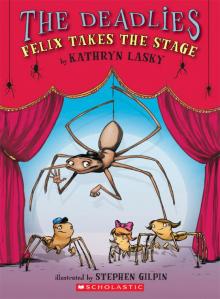 Felix Takes the Stage
Felix Takes the Stage Lucy
Lucy Lone Wolf
Lone Wolf Broken Song
Broken Song The Shattering
The Shattering The Crossing
The Crossing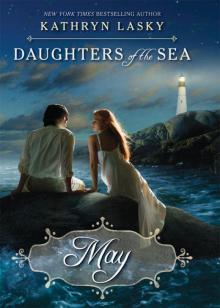 May
May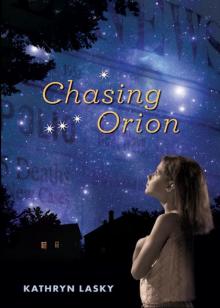 Chasing Orion
Chasing Orion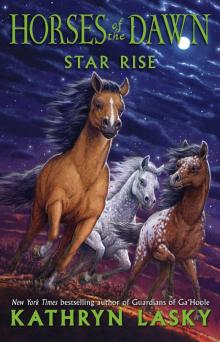 Star Rise
Star Rise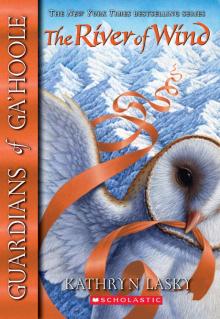 The River of Wind
The River of Wind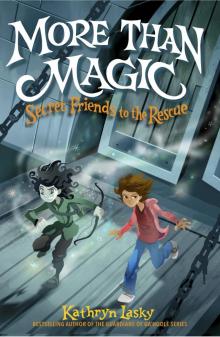 More Than Magic
More Than Magic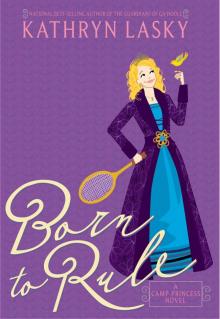 Born to Rule
Born to Rule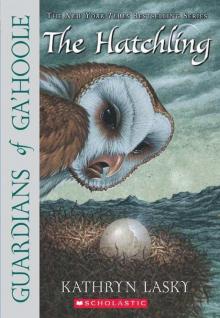 The Hatchling
The Hatchling The Rescue
The Rescue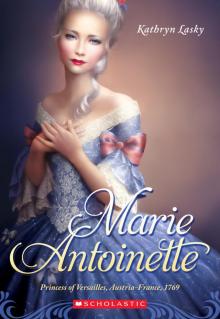 Marie Antoinette: Princess of Versailles, Austria - France, 1769
Marie Antoinette: Princess of Versailles, Austria - France, 1769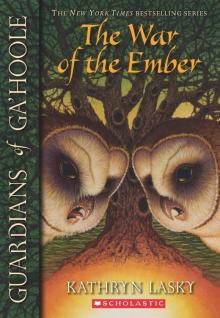 The War of the Ember
The War of the Ember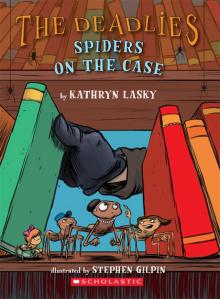 Spiders on the Case
Spiders on the Case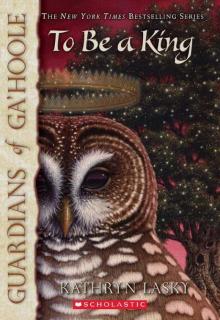 To Be a King
To Be a King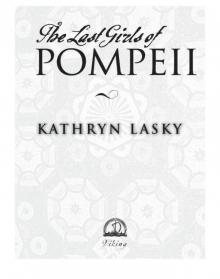 The Last Girls of Pompeii
The Last Girls of Pompeii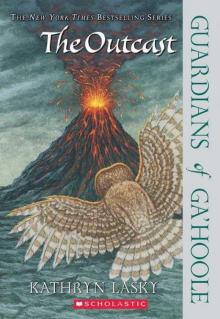 The Outcast
The Outcast Exile
Exile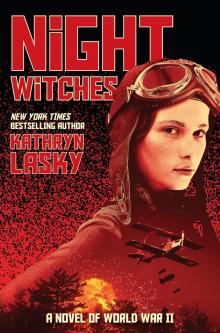 Night Witches
Night Witches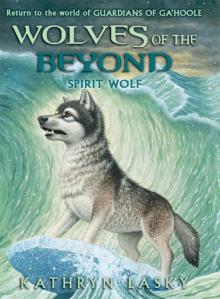 Spirit Wolf
Spirit Wolf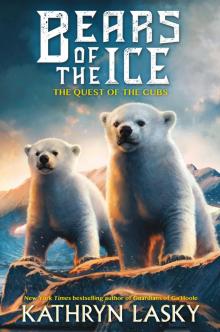 The Quest of the Cubs
The Quest of the Cubs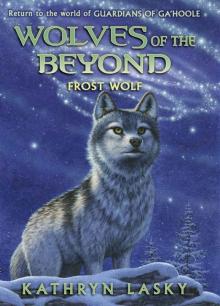 Frost Wolf
Frost Wolf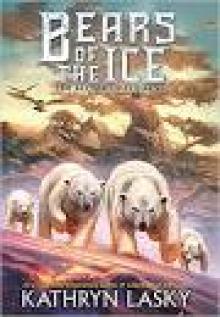 The Keepers of the Keys
The Keepers of the Keys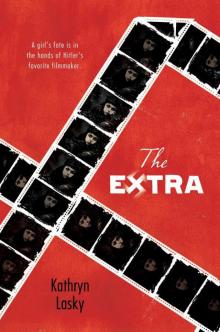 The Extra
The Extra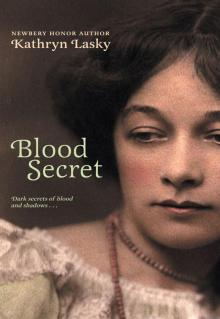 Blood Secret
Blood Secret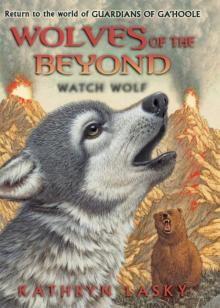 Watch Wolf
Watch Wolf Blazing West, the Journal of Augustus Pelletier, the Lewis and Clark Expedition
Blazing West, the Journal of Augustus Pelletier, the Lewis and Clark Expedition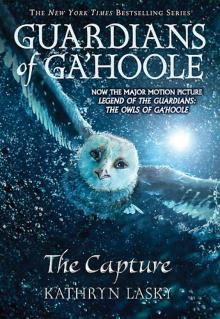 The Capture
The Capture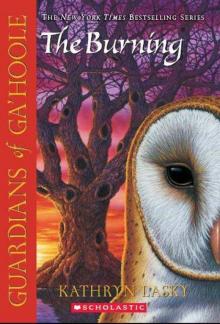 The Burning
The Burning The Journey
The Journey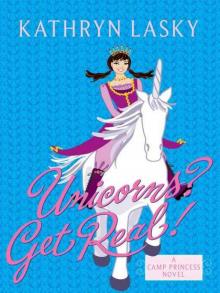 Unicorns? Get Real!
Unicorns? Get Real! The Escape
The Escape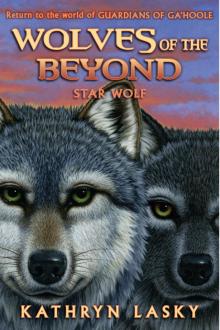 Star Wolf
Star Wolf Ashes
Ashes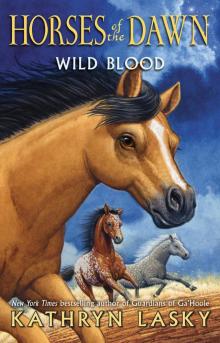 Wild Blood
Wild Blood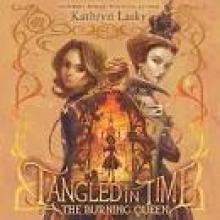 Tangled in Time 2
Tangled in Time 2 The Siege
The Siege Hannah
Hannah Elizabeth
Elizabeth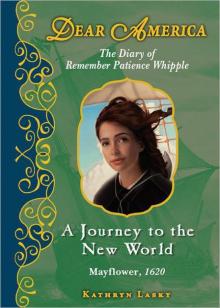 A Journey to the New World
A Journey to the New World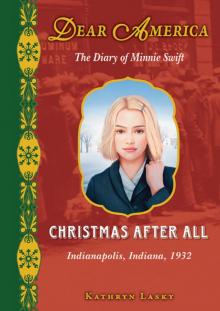 Christmas After All
Christmas After All Mary Queen of Scots
Mary Queen of Scots